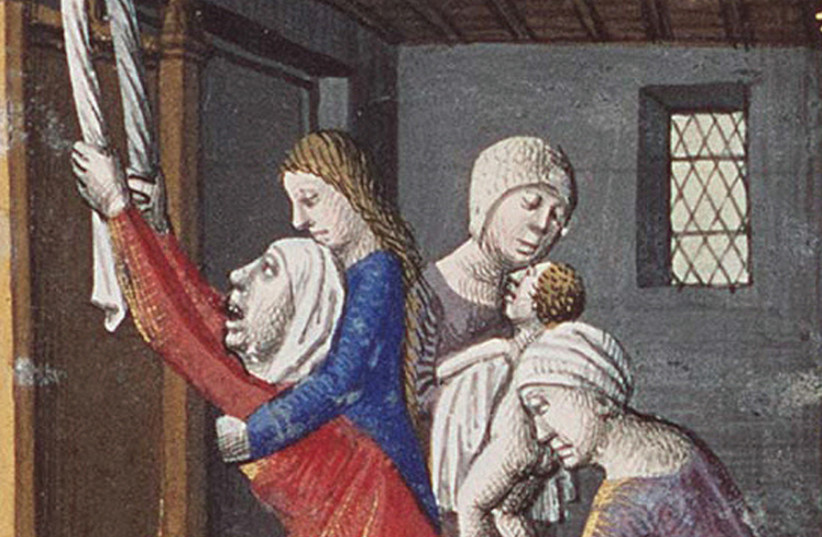When Jacob hears that Esau, the brother who has sworn to kill him, is coming with 400 men, “Jacob was greatly frightened (Gen. 32:8).” He divides his camp and says they should present themselves to Esau and offer gifts; perhaps his brother will be calmed before Jacob himself appears.
Yet after his encounter with the angel, from which he emerges limping, Jacob in fact does not send presents ahead but “he himself went on ahead.” He now has the courage to present himself to his brother without the propitiation of gifts, or appeals to mercy by first parading his family.
Jacob’s confidence is justified. Instead of killing him, Esau falls on his neck and both weep. Why?
I want to offer three answers of ascending emotional power.
Rashbam (12th century) points out that Jacob, when he does something wrong, runs away. When he deceived his father and took the birthright, he ran. When he left Laban’s house, he ran. Esau sees that Jacob has a limp. He can no longer run. The evader, the trickster, is straightforward and present. When Esau sees Jacob’s uneasy stride, he realizes this is a different person from the brother whom he swore to kill.

Benno Jacob was a German rabbi at the beginning of the 20th century. He, too, points to Jacob’s limp, but draws a different conclusion. Esau remembered a Jacob whom he took as arrogant and entitled. Now the arrogant brother who had taken what was rightfully Esau’s is gone, and in his place is an older, limping man who had been wounded by life. Struck by the difference, according to Rabbi Jacob, Esau’s heart changed.
These are both cogent and interesting readings. Yet my favorite is one my father offered, a beautiful interpretation of this episode.
Remember, he said, in the ancient world people never did something that we do multiple times a day – look at themselves. They did not have mirrors in their homes (unless they were very rich and had silver backings). When in the Greek myth Narcissus falls in love with himself, it is because he sees his own reflection in a pool. And, as we know, seeing yourself in water is a poor substitute indeed for a mirror. Therefore, people could go their entire lives without properly seeing themselves.
Now Esau and Jacob were twins. They were not identical twins, but they had been born at the same time. They were the same age.
Since the moment Esau swore to kill his brother, decades have passed. For the first time, he is confronted by his twin. Esau sees how old Jacob has grown and in the process recognizes how old he, too, has grown. Much of life has passed, wasted, in hate. Before Esau stands a mirror of the years and everything that has been lost.
How powerful is the idea that we can look at one another to see ourselves, to see how we have lived our lives. People who are estranged watch the days and years go by, often heedless of the march of time. Suddenly seeing the other, looking in the mirror, as it were, can remind us of who we are.
The Hebrew word for face, “panim,” is a plural noun, reminding us that faces do not exist in isolation but in relation. Moses sees God panim el panim, face-to-face, and that is the highest praise accorded to a human being.
Emmanuel Levinas, the French Jewish philosopher who made the face of the other the pivot of his teaching, wrote: “In front of the face, I always demand more of myself.” To truly see another person is to be better oneself.
In this moment that proved to be a hinge of history, Esau saw the face of Jacob, rose to the moment, and wept.
The writer is Max Webb Senior Rabbi of Sinai Temple in Los Angeles and the author of David the Divided Heart. On Twitter: @rabbiwolpe
